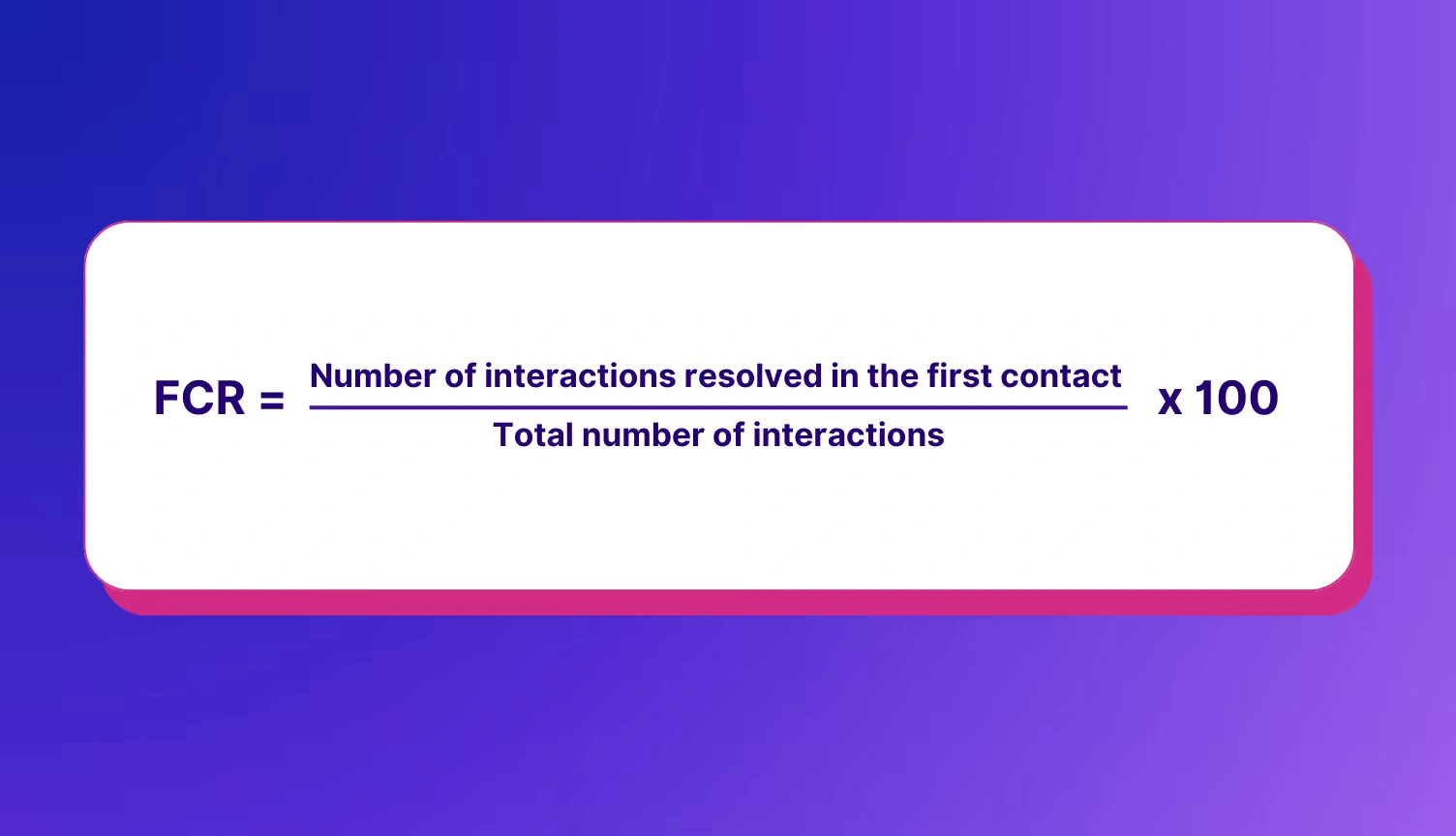Contact center automation is transforming how support teams operate, replacing repetitive tasks with AI-driven efficiency. By using contact center automation tools, businesses can boost first-call resolution, reduce agent ramp-up time by up to 60%, and audit 100% of customer interactions. The result? Faster service, smarter agents, and happier customers.
Key Takeaways: Contact Center Automation Solutions
- Automation reduces costs & errors by handling repetitive tasks, such as CRM updates, call logging, and audits.
- Faster agent ramp-up: AI-driven onboarding and coaching cut training time by up to 60% and improve call quality 3×.
- Higher First Contact Resolution (FCR): Intelligent routing, chatbots, and IVR boost resolution rates and reduce repeat calls.
- Improved customer satisfaction: Agents focus on empathy and problem-solving while automation handles routine tasks.
- Lower attrition: Automated coaching and learning paths reduce stress, improve productivity, and support career growth.
- Comprehensive auditing: 100% call coverage with AI summaries and compliance monitoring ensures accuracy and consistency.
- Scalable operations: Machine learning predicts peak demand, optimizes staffing, and enhances workforce efficiency.
- Proven impact with Convin: Automates workflows for agents and auditors, delivering higher productivity, fewer errors, and more satisfied customers.
Read on to discover how automation is reshaping modern call centers.
Explore the power of contact center automation today.
How Do Contact Center Automation Solutions Work?
Automated call center solutions result from advancements in machine learning and natural language processing. The three key pillars driving contact center automation are:
- LLM (Large Language Models): These AI systems are trained on vast amounts of human data, enabling them to understand the relationships between entities. LLMs utilize deep learning techniques for text classification and sentiment analysis, accurately gauging the customer’s intent. The most notable example of an LLM is ChatGPT, which generates responses based on user queries.
- Machine Learning: As the backbone of the AI revolution, machine learning enables AI-based applications to become intelligent over time. These algorithms undergo iterative learning processes, gradually evolving into systems capable of accurately responding to human queries.
- Conversation Intelligence: Every customer and agent interaction generates valuable data. Complex LLM systems can analyze this data to extract actionable insights, which are crucial for an automated call center to develop insights into customer intent. Furthermore, these options can be scaled inexpensively.
How Contact Center Automation Solutions Drive Efficiency and Customer Satisfaction
Any kind of contact center automation aims to eliminate time-consuming tasks. These tasks can range from evaluating customer calls to creating a smooth agent onboarding process for new agents.
Cut agent ramp-up time by 60%
Streamlining call center processes offers numerous benefits for optimizing workforce management. Here are a few key advantages:
1. Reducing Operational Costs
Leveraging call center automation can significantly reduce the time spent on repetitive tasks, allowing agents to focus on critical responsibilities such as empathetically understanding customers’ problem statements and delivering effective solutions.
Operational costs are a key factor in running a contact center. Inefficient processes and undertrained agents can drive up costs in any contact center that has yet to integrate call center automation solutions into its daily operations.
2. Agent Ramp-Up Time
Agents typically take 30 to 90 days to fully understand the process and start generating revenue for the company. A streamlined onboarding process can boost call quality by 3x and increase customer satisfaction scores by 27%. Contact center automation software assists in training new agents by presenting curated snippets of successful sales conversations from top-performing agents. Additionally, contact center managers can track new agents' progress and provide targeted learning materials based on specific areas for improvement.
3. Increasing First Contact Resolution Rate

First Contact Resolution (FCR) refers to the number of conversations a call center agent successfully resolves during the first interaction, eliminating the need for a follow-up call.
High FCR rates boost customer satisfaction and reduce operational costs by allowing agents to handle more calls efficiently.
Integrating tools like chatbots and intelligent call routing via IVR enables customers to resolve their queries quickly.
Properly leveraging contact center automation tools empowers agents to address complex customer issues while automating more straightforward tasks without human intervention.
4. Improve Customer Satisfaction Levels
Customer satisfaction is the key metric in the contact center industry. Contact center automation is crucial in enhancing customer satisfaction, encouraging customers to return and continue using the company’s services.
Integrating call center automation software enables agents to focus on serving customers more effectively by automating routine tasks. Customers need empathetic agents who genuinely understand their pain points and work to resolve issues effectively. Automated call center solutions support this goal by removing easily repetitive tasks from agents’ workloads, such as updating CRMs, processing payments, logging call details, and sending follow-up emails.
5. Reduce Agent Attrition
More often than not, agents leave organizations due to the excessive stress imposed by upper management. Employees will likely seek better prospects elsewhere when work pressure is combined with a lack of opportunities to upskill.
Contact center automation enables call centers to offer automated agent coaching, which helps reduce employee burnout. One key reason employees leave is the desire for better learning opportunities. An automated call center provides agents with continuous learning solutions through dedicated modules that improve performance.
These learning modules allow employees to identify gaps in their sales processes and offer personalized learning paths tailored to their strengths. By mandating assessments, organizations can boost employee productivity and reduce the likelihood of them seeking opportunities elsewhere.
6. Improve Auditing
Manual call auditing is labor-intensive and often involves cherry-picking calls from large call logs, providing only a limited understanding of team performance.
However, with contact center automation, auditors can access all recorded calls, allowing for comprehensive analysis. The call center automation solution transcribes conversations and generates AI-powered summaries, making it easier to understand the scope of each call.
Additionally, these systems use conversation intelligence to flag compliance violations and ensure that agents adhere to established practices without causing customer dissatisfaction.
Automated quality assurance's built-in self-coaching and AI feedback features help enhance the call center's operational efficiency and customer satisfaction.
.webp)
This blog is just the start.
Unlock the power of Convin’s AI with a live demo.

Key Use Cases for Call Center Automation Solutions
Business leaders can select from various automated call center solutions depending on their use case.
1. Chatbots or Virtual Assistants
Chatbots marked the first real-world application of technology to establish automated call centers. AI-powered chatbots and virtual agents are available 24/7, increasing customer loyalty and satisfaction.
Chatbots and virtual assistants significantly reduce the volume of traffic managed by human agents by handling inquiries that don't require human intervention.
2. IVR Technology
Managing the large volume of incoming calls is the most common challenge for any call center looking to scale. With only a limited number of agents available at any given time, high call volumes can lead to agent fatigue, customer impatience, and increased repeat calls.
One of the core components of contact center automation is integrating IVR systems with telephony infrastructure. IVR-based services can “listen” to customers and provide feedback through pre-recorded responses. If a more nuanced understanding is needed, the IVR seamlessly hands off the call to a human agent.
Implementing IVR technology enhances the first call resolution rate due to its 24/7 availability, allowing customers to access support anytime. This improves customer satisfaction and lowers operational costs by reducing the need for extensive hiring and training.
3. Automated Agent Coaching

Implementing a generic coaching program for all contact center agents is ineffective, as each agent requires training in different areas. McKinsey says, "Managers spend 50% of their time preparing for coaching."
Contact center automation tools powered by machine learning offer a simpler and more effective approach. These tools enable contact centers to provide each agent with a personalized training schedule tailored to their unique strengths and weaknesses, eliminating managers' need to customize manually.
4. Robotic Process Automation (RPA)
A call center agent has many repetitive and time-consuming tasks. One example is updating the CRM after each customer interaction is over.
Integrating a Robotic Process Automation Call Center Solution helps eliminate the need for agents to spend time on repetitive tasks.
These bots access the recordings of both outgoing and incoming calls. Using the transcripts generated by conversation intelligence, they update the CRM with the latest customer information without the help of human agents.
5. Live Agent Assistance
One advantage of an automated call center is its ability to provide real-time feedback and support to its agents.
Only some phone conversations with a customer go as planned. There’s always a risk of the discussion going off track, leading to the customer abruptly ending the call. This decreases the agent's FCR and negatively impacts customer satisfaction.
Integrating solutions that facilitate real-time automation for call centers enables agents to receive real-time feedback during their calls. Through advanced sentiment analysis, agents can discern if the customer is beginning to disengage from the conversation.
Call center automation empowers agents to make instant adjustments based on real-time feedback, increasing their chances of success.
6. Streamline operations
Contact center automation solutions streamline repetitive tasks and free agents to focus on meaningful customer interactions. Post-call work—like updating CRMs, categorizing conversations, and sharing summaries—often slows agents down. Automation eliminates this burden by seamlessly integrating with CRM systems to automatically log details, organize interactions, and generate insights.
In high-volume environments, where hundreds of agents handle thousands of calls daily, automation ensures accurate tracking of customer intent and smarter resource allocation. With machine learning, managers can forecast peak times, optimize staffing, and cut operational costs. Automated systems also handle agent onboarding, coaching, and quality monitoring—enhancing both efficiency and employee experience.
Tools like Convin go a step further by automating workflows for both agents and auditors. The result is higher productivity, reduced errors, and improved satisfaction for both customers and employees. In short, contact center automation is not just about saving time—it’s about delivering smarter, faster, and more consistent customer experiences.
Ready to take the next step? Request a free demo to see how automation can transform your contact center.
Audit 100% of calls effortlessly. Try Convin.
Transform Your Operations with Contact Center Automation Solutions
Contact center automation solutions transform organizations' operations, driving efficiency, improving customer satisfaction, and reducing costs. By automating repetitive tasks, enhancing agent performance, and streamlining processes, these solutions empower call centers to focus on what truly matters: delivering exceptional customer experiences. As businesses navigate an increasingly competitive landscape, adopting the right call center automation solutions is no longer optional; it’s a necessity for staying ahead.
Ready to optimize your call center operations? Explore the power of automation and take the next step toward unparalleled efficiency and satisfaction today!
Optimize your call center—Request a demo today!
Frequently Asked Questions
1. What is call center automation?
Call center automation utilizes AI and software to automate tasks such as call routing, responses, and reporting, thereby reducing the manual workload for agents.
2. How do you automate a call center?
By integrating tools like IVR, chatbots, CRM systems, AI call analytics, and automated coaching to reduce repetitive tasks and speed up resolutions.
3. What is an example of an automated call center?
A telecom company using voicebots to answer FAQs, verify user identity, and route calls, without live agent involvement.
4. What industry does automated call center help?
It helps banking, healthcare, e-commerce, insurance, telecom, and any other industry that needs fast, consistent, and scalable customer service.








.avif)